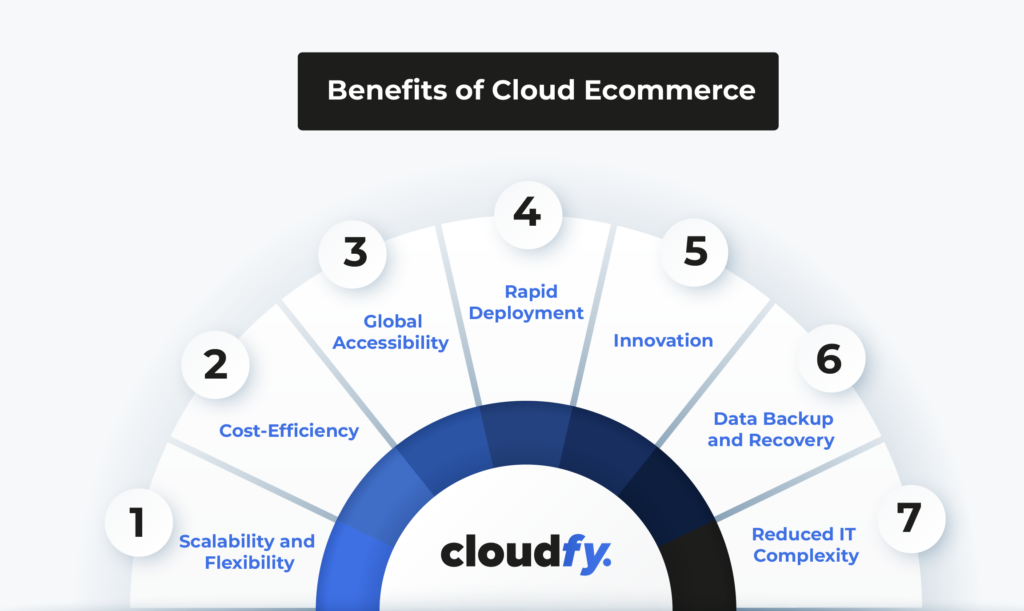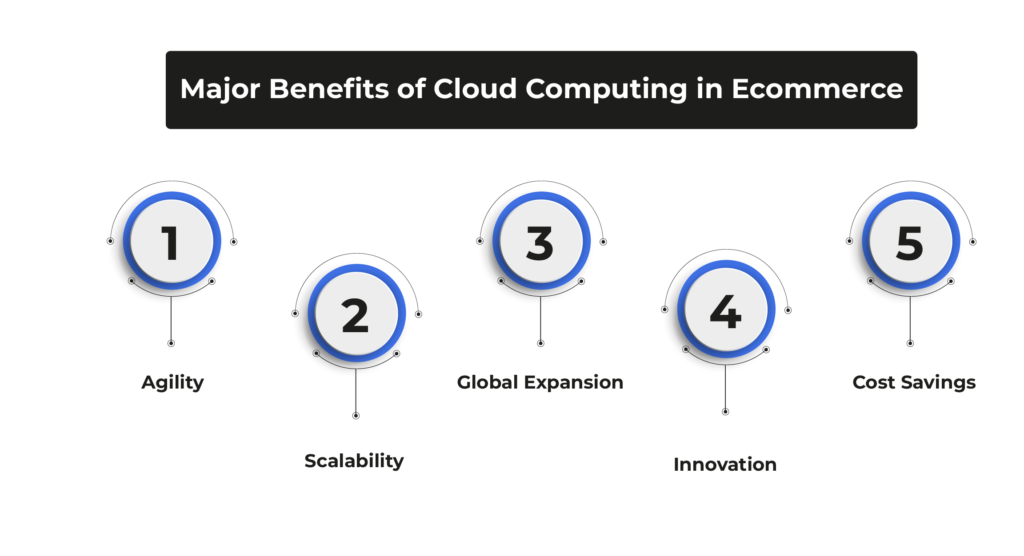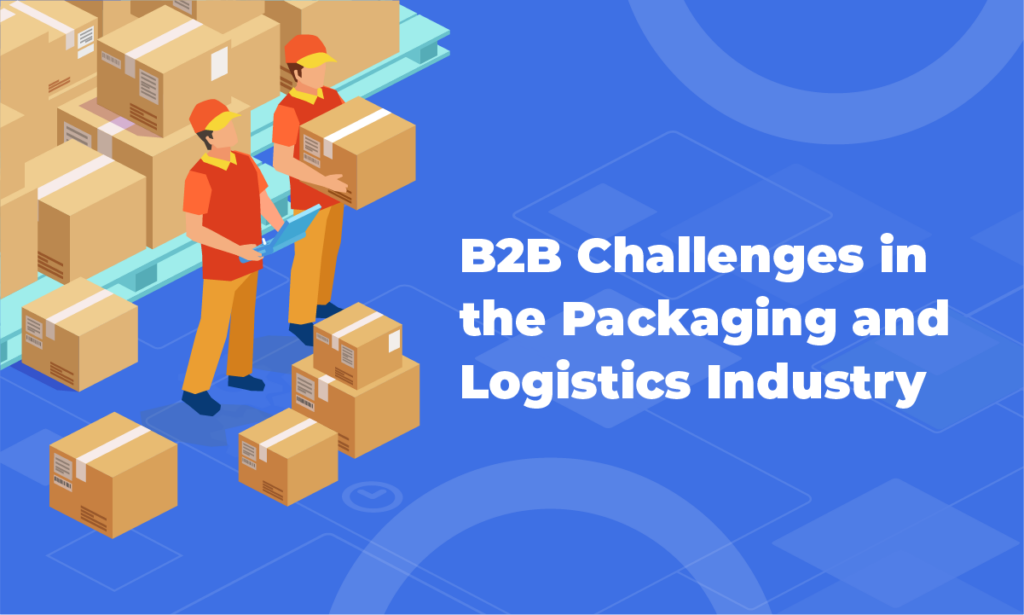Cloud Commerce
Cloud Ecommerce is growing in demand, many companies believe software delivered in the cloud is the future. We have written a quick article to explore this and help you better understand the term cloud ecommerce. The term cloud seems to be used with anything and everything to do with the Internet these days. Such has the term taken over the internet that a search for ‘cloud’ on Google brings up information about WiFi Cloud rather than a real cloud in the sky!
In simple terms cloud in the online / digital sense refers to underlying scalable infrastructure which means your website or ecommerce site doesn’t reside on a single server rather multiple and in multiple locations. So should any part of the infrastructure fail, your site continues to run on the remaining infrastructure.
Cloud ecommerce offers you the perfect combination of resilience, scalability, functionality and performance. It’s critical when selling online to new and existing customers that your B2B ecommerce site is fast, responsive and always available. A weekend or a day or downtime can cost a lot of money in terms of lost revenue. True cloud Software-As-A-Service (SaaS) solutions offer what is known as multi tenanted cloud, this means that rather than your software, in this case an ecommerce site run as an individual installation on a cloud server, it is running as part of a software solution which is the same for all users of the service. The advantage of true SaaS cloud solutions such as Cloudfy is that your ecommerce site will receive regular updates throughout the year adding new features and functionality without you having to apply updates yourself. This continual enhancement model means that you can always keep your business moving forward and offer your customers more ways to buy from you, receive promotions, increase engagement and conversion over time.
Table of Contents
What is Cloud Ecommerce? Exploring the Future of Digital Commerce
In the fast-paced realm of digital commerce, innovation continues to reshape the way businesses engage with customers, manage operations, and drive growth. One of the most transformative advancements in recent years is the emergence of cloud ecommerce. This groundbreaking approach has revolutionized the way online businesses operate, offering unparalleled scalability, flexibility, and efficiency. In this article, we’ll delve into the concept of cloud ecommerce, explore its benefits, and uncover how it’s shaping the future of the ecommerce landscape.
Understanding Cloud Ecommerce
At its core, cloud ecommerce refers to the hosting, management, and operation of ecommerce websites and platforms using cloud computing infrastructure. Traditional ecommerce platforms were often hosted on physical servers, requiring significant investments in hardware, maintenance, and IT resources. Cloud ecommerce, on the other hand, leverages cloud technology to provide a virtualized environment where businesses can host their online stores and applications.
Key Components of Cloud Ecommerce:
Cloud Hosting
Cloud ecommerce platforms are hosted on cloud service providers’ infrastructure, eliminating the need for physical servers. This not only reduces costs but also offers greater scalability and flexibility.
Scalability
Cloud ecommerce platforms can easily scale up or down based on demand. During peak shopping seasons or promotional campaigns, resources can be allocated to accommodate increased traffic, ensuring optimal performance.
Pay-as-You-Go Model
Cloud ecommerce operates on a pay-as-you-go pricing model. Businesses pay only for the resources they use, avoiding upfront investments in hardware and infrastructure.
Global Reach
Cloud infrastructure is spread across data centers around the world, allowing businesses to serve customers globally with minimal latency and improved user experiences.
Data Security
Cloud providers implement robust security measures, including data encryption, access controls, and compliance certifications, ensuring the security of customer information.
Benefits of Cloud Ecommerce

Scalability and Flexibility
Cloud ecommerce platforms offer unparalleled scalability, allowing businesses to handle sudden traffic spikes without compromising performance. Resources can be easily adjusted to match demand.
Cost-Efficiency
The pay-as-you-go model eliminates the need for significant upfront investments in hardware and maintenance. Businesses only pay for the resources they use, optimizing cost efficiency.
Global Accessibility
Cloud infrastructure enables global accessibility, providing fast and consistent experiences to customers across different regions, regardless of their location.
Rapid Deployment
Cloud ecommerce platforms can be deployed quickly, enabling businesses to launch their online stores faster and capitalize on market opportunities.
Innovation
Cloud technology allows for rapid updates and feature releases. This agility enables businesses to adapt to changing market trends and customer preferences.
Data Backup and Recovery
Cloud providers offer automated data backup and recovery solutions, reducing the risk of data loss and ensuring business continuity.
Reduced IT Complexity
Cloud ecommerce eliminates the need for businesses to manage and maintain physical servers, reducing IT complexity and freeing up resources for strategic initiatives.
Cloud Ecommerce and Business Growth
Cloud ecommerce has become a catalyst for business growth. By providing businesses with the tools and infrastructure to manage their online operations efficiently, cloud ecommerce allows entrepreneurs to focus on what truly matters: delivering exceptional customer experiences and driving revenue. Here’s how cloud ecommerce contributes to business growth:

Agility
Cloud ecommerce platforms empower businesses to quickly adapt to market changes, launch new products, and experiment with marketing strategies, enabling agile business operations.
Scalability
During periods of high demand, cloud ecommerce platforms can easily scale to accommodate increased traffic, ensuring seamless shopping experiences for customers.
Global Expansion
Cloud infrastructure enables businesses to expand their reach to international markets without the complexities of setting up physical servers in different regions.
Innovation
Cloud ecommerce fosters innovation by providing a flexible environment for testing new features, integrations, and user experiences.
Cost Savings
The cost-efficient pay-as-you-go model of cloud ecommerce eliminates the need for upfront hardware investments, allowing businesses to allocate resources more strategically.
Challenges and Considerations
While cloud ecommerce offers numerous benefits, there are also challenges and considerations to keep in mind:
Data Security
While cloud providers implement robust security measures, businesses need to ensure data security by implementing additional safeguards and compliance practices.
Vendor Lock-In
Businesses should carefully consider their choice of cloud provider to avoid potential vendor lock-in, where migrating to a different provider could be complex.
Integration
Integrating cloud ecommerce platforms with existing systems, such as ERP and CRM, requires careful planning and seamless integration to ensure smooth operations.
Cost Management
While cloud ecommerce reduces upfront costs, businesses need to monitor their usage to avoid unexpected expenses.
Conclusion: Unlocking the Potential of Cloud Ecommerce
Cloud ecommerce has redefined the way businesses approach online operations. Its scalability, flexibility, cost efficiency, and global accessibility make it a driving force behind digital commerce innovation. As businesses continue to evolve and adapt to the dynamic landscape, cloud ecommerce empowers them to deliver exceptional customer experiences, drive growth, and position themselves at the forefront of the ever-evolving ecommerce landscape. By harnessing the power of cloud technology, businesses can unlock new levels of success and embrace a future where commerce knows no boundaries.
To find out more about the first true Cloudfy Ecommerce solution why not get in touch with the experts at Cloudfy.
Frequently Asked Questions
Cloud Ecommerce refers to the hosting, management, and operation of ecommerce websites and platforms using cloud computing infrastructure. Unlike traditional setups on physical servers, cloud ecommerce leverages cloud technology to provide scalable, flexible, and efficient online stores.
Unlike traditional hosting on physical servers, cloud ecommerce platforms utilize virtualized cloud infrastructure. This offers benefits such as scalability, pay-as-you-go pricing, global accessibility, and reduced reliance on physical hardware.
Cloud Ecommerce offers unparalleled scalability, cost efficiency, global accessibility, rapid deployment, innovation capabilities, data security, and reduced IT complexity. It allows businesses to adapt quickly to market changes, deliver seamless customer experiences, and drive growth.
Cloud Ecommerce empowers businesses to adapt to market changes quickly, scale during high demand, expand globally, innovate through flexible environments, allocate resources strategically, and focus on exceptional customer experiences, driving revenue growth.
While Cloud Ecommerce offers numerous benefits, challenges include ensuring data security beyond cloud provider measures, avoiding vendor lock-in through careful provider selection, planning seamless integration with existing systems, and monitoring usage to manage costs.
Cloud Ecommerce's flexible environment enables businesses to test new features, integrations, and user experiences rapidly. This fosters innovation by allowing experimentation and adaptation to evolving market trends and customer preferences.
Cloud infrastructure's global reach allows businesses to serve customers in international markets without the complexities of setting up physical servers in different regions. This opens doors to global expansion opportunities.
Cloud Ecommerce is redefining how businesses approach online operations. Its scalability, flexibility, cost efficiency, and global accessibility position it as a driving force behind digital commerce innovation, enabling businesses to deliver exceptional customer experiences and drive growth.
To explore the potential of Cloud Ecommerce solutions, businesses can get in touch with the experts at Cloudfy, who specialize in leveraging cloud technology to transform online businesses.





